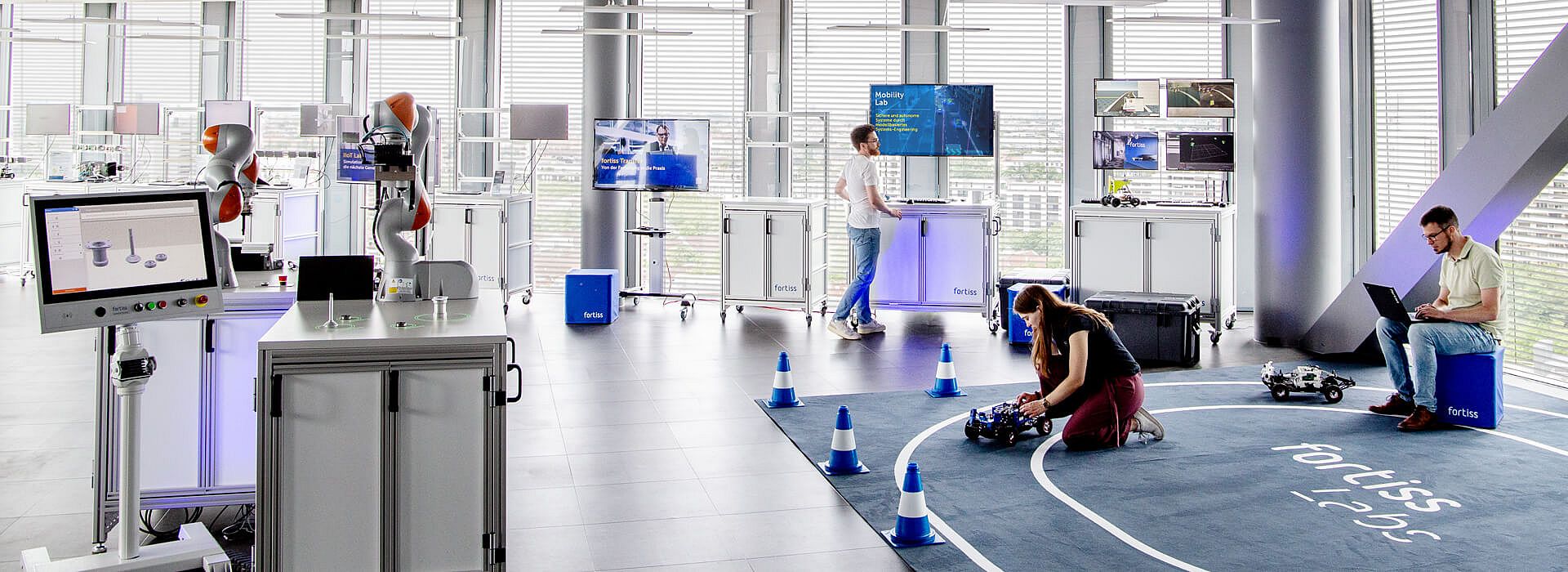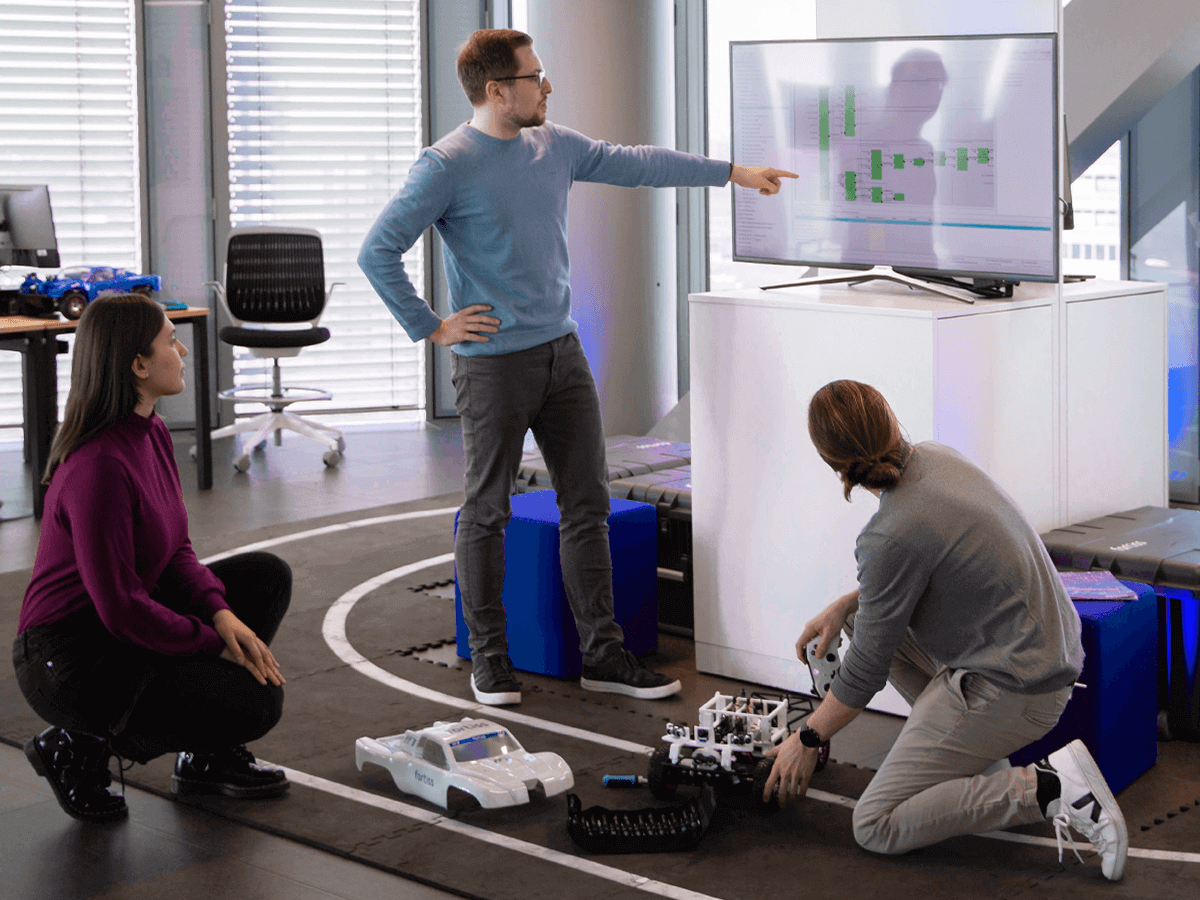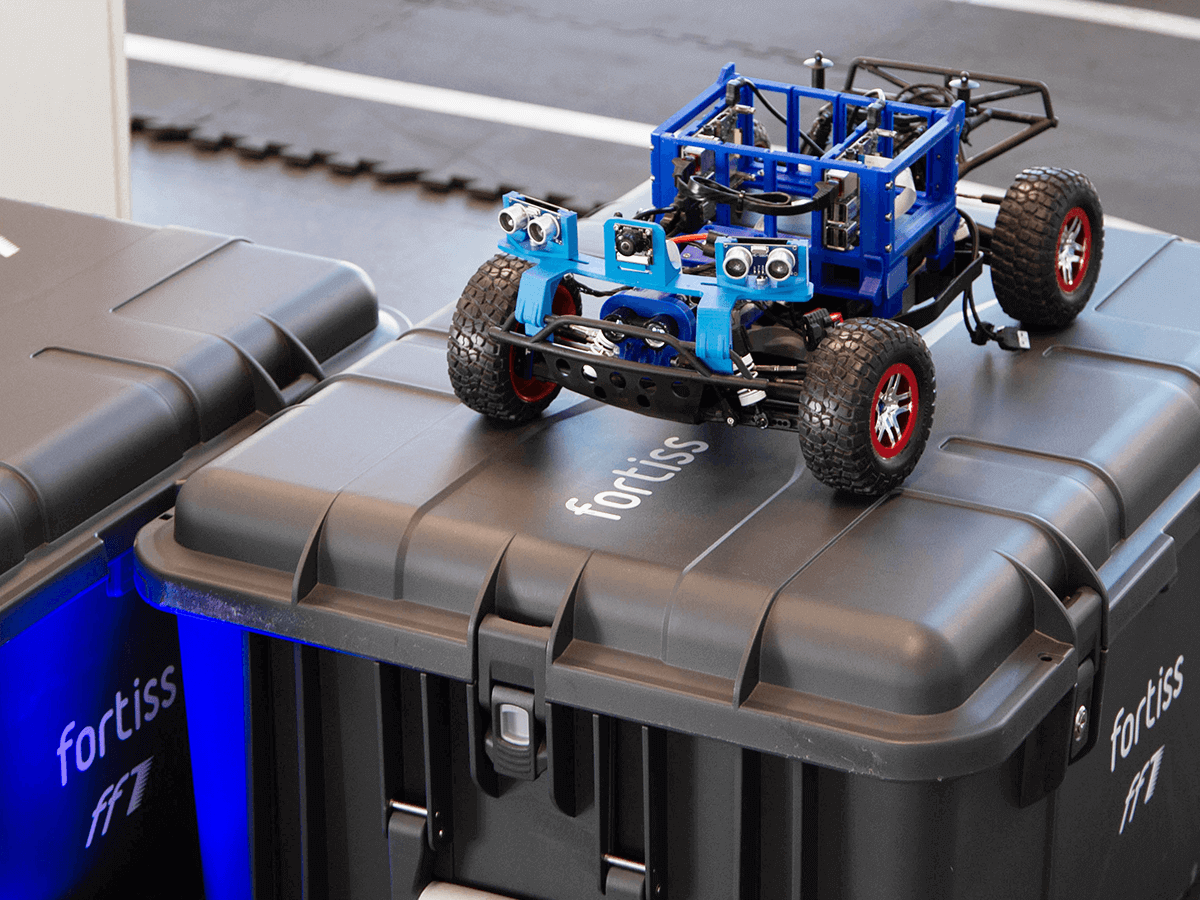
Efficiently developing safe autonomous systems with MBSE and test automation
The Mobility Lab provides hands-on access to fortiss research, methods, and open-source tools for model-based systems engineering and automated software testing by illustrating their application in the design, implementation, and verification of autonomous driving (AD) and driver assistance (ADAS) functions. The setup includes a test track with sensor- and compute-equipped small-scale vehicles, along with simulators for vehicle functions as well as dynamics and the driving environment.
The Mobility Lab hosts demonstrators that illustrates how fortiss solutions support OEMs, suppliers, and tool-vendors in the cyber-physical systems supply chain — such as the automotive sector — in developing complex systems more efficiently and cost-effectively. As an open platform, the lab provides access to assets like open-source tools, models, and use-case source code to facilitate research and transfer to industry and academia. It also serves as a hub for academic and professional training, as well as student projects.

Model-based Systems Engineering
The Mobility Lab provides a platform for demonstrators that integrate structured engineering models with formal methods, simulation, and AI. Based on fortiss’ open-source MBSE tool AutoFOCUS3 and using models of advanced driver-assistance systems (ADAS) functions, the lab supports research on automating engineering tasks and shifting them to earlier stages of development, including:
Advanced Test Automation
The Mobility lab provides a flexible and modular environment for the development, integration, and testing of advanced driver assistance systems (ADAS) and automated driving (AD) functions on small-scale physical vehicles. It supports diverse test configurations, including pure simulation, real-world deployment, vehicle-in-the-loop (ViL), and mixed-reality (MR) setups. Built on fortiss' open-source toolchain and research frameworks, the lab enables a range of research activities, including:

